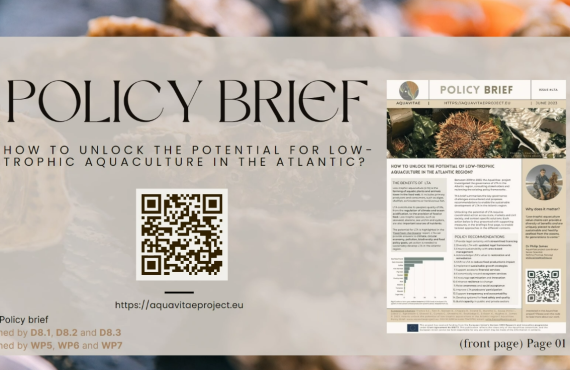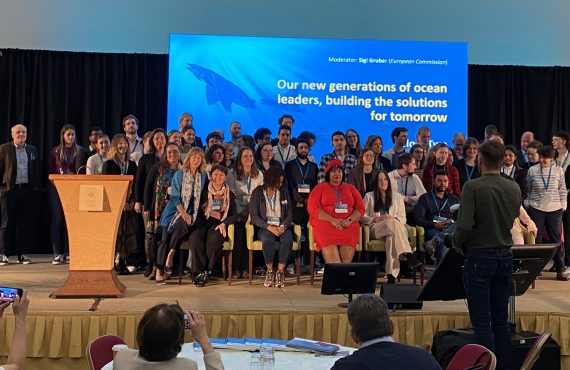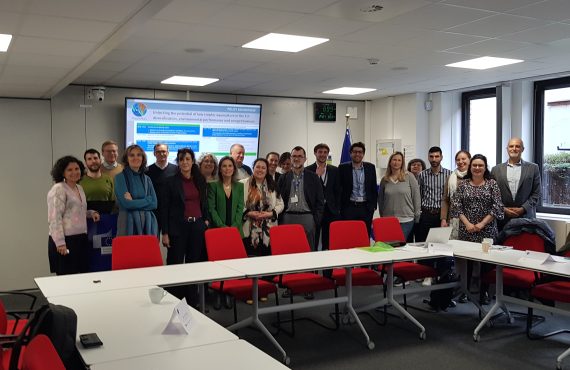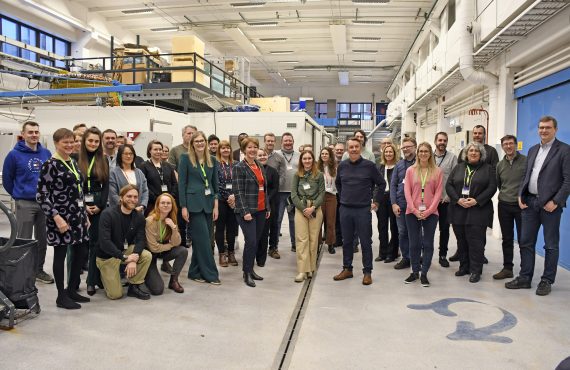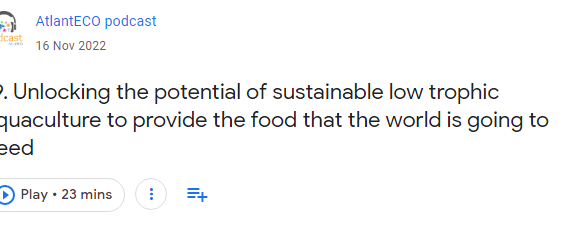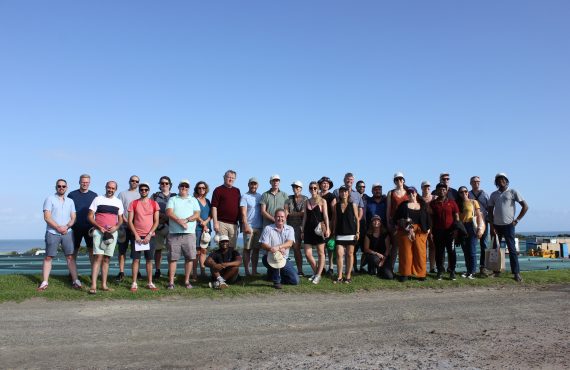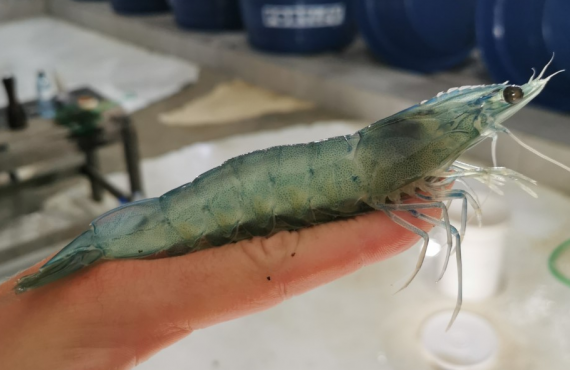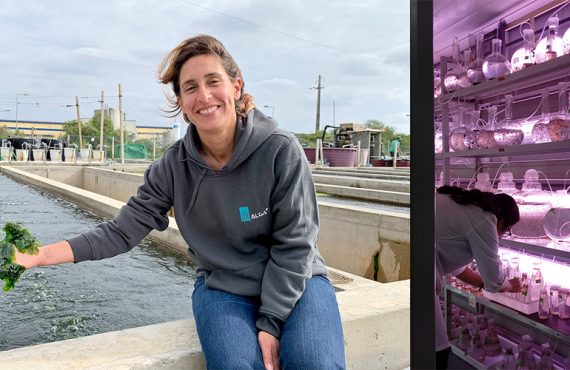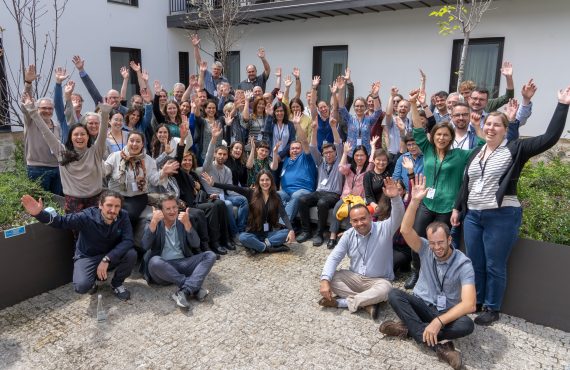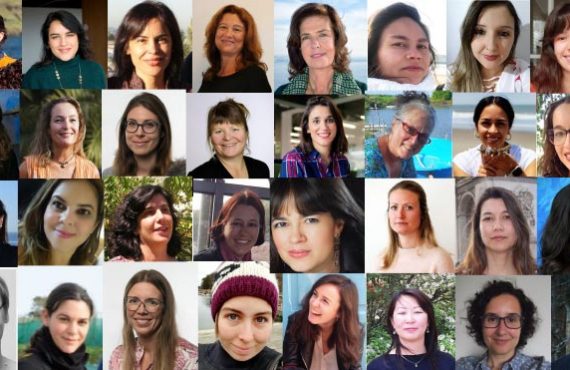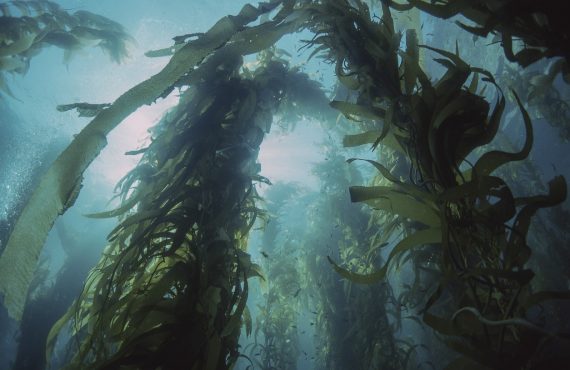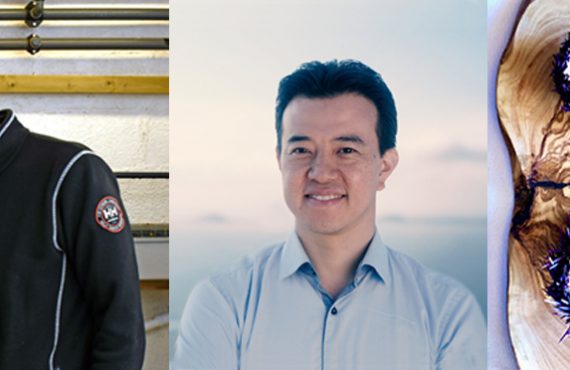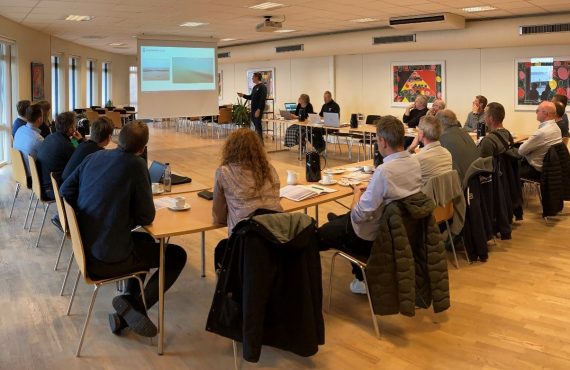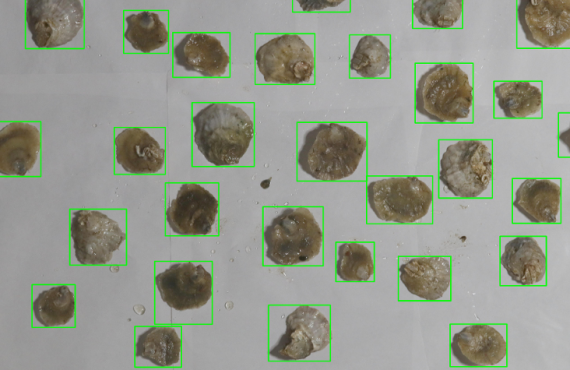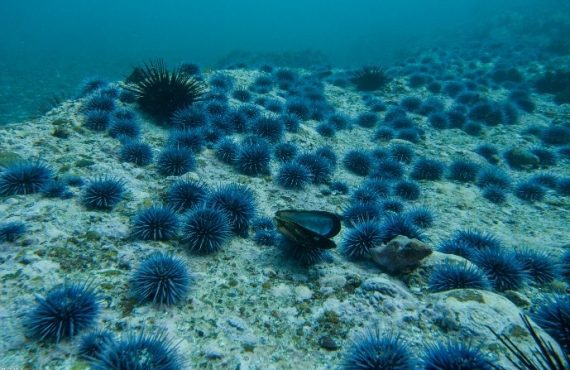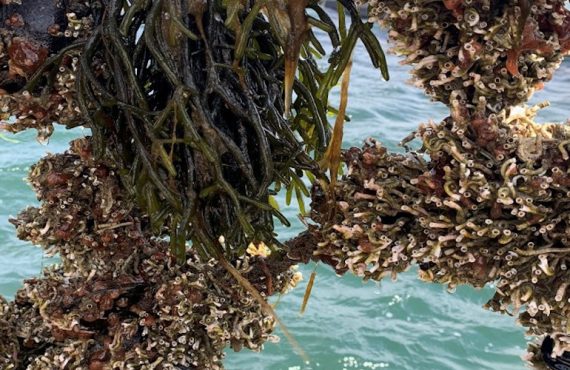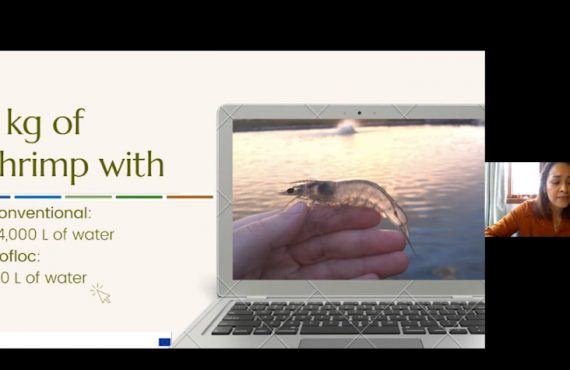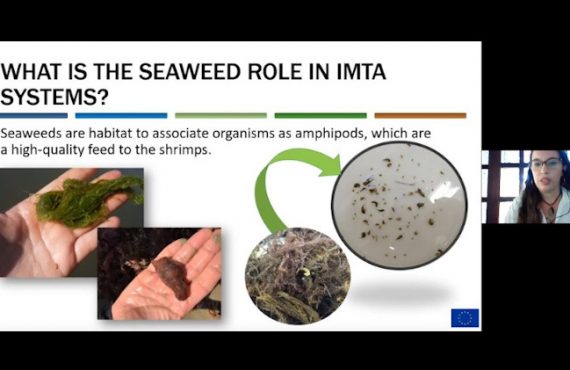Lobster traps in Prince Edward Island, by Martin Cathrae.
By Professor Barry Antonio Costa-Pierce, Program Coordinator
In 2018, the University of New England launched a new Master’s program in Ocean Food Systems as an international education/training program that comprehensively examines the growing interactions between fisheries, aquaculture and the seafood trade, especially in the North Atlantic as it undergoes rapid climate change. The program partnered initially with Hólar University and the University of Akureyri in Iceland; and today is working with these universities and the University of Gothenburg, Sweden and Nord University in Bodø, Norway to develop a sister Master’s program, the Nordic Master’s Programme in Sustainable Production and Utilization of Marine Bioresources
International academic program
The world’s oceans produce only 1-4% of total human foods. Aquatic protein production systems of fisheries and aquaculture are far superior choices for global investments, plus nutrient and omega-3 rich ocean foods are well-established, healthier human food choices than their land-based protein equivalents. International scientific and educational partnerships are essential to the full utilization and sustainable development of the rapidly developing North Atlantic and peri-Arctic seas fisheries and aquaculture resources. There is a global need to develop international education programs that prepare a new generation of ocean foods leaders to implement the FAOs ideals of responsible fisheries and ecological aquaculture.
Substantial price and volume competition occur between fisheries and aquaculture products in the modern marketplace. There are vital connections between capture fisheries and aquaculture in the ecological, fisheries management, seafood market and social dimensions, but academic programs rarely develop the required deep collaborations across disciplines and beyond academic boundaries.
Building on existing strenghts
The concept of pristine, wild fisheries and untouched habitats is at odds with the modern management realities of climate change and seafood systems, and the important contributions and impacts of aquaculture. Our program is important to the future of our countries during and after AquaVitae, and it will build on the existing marine aquaculture, fisheries and business strengths of a number of similarly sized North Atlantic universities and promote international project developments and exchanges throughout. Partnerships will expand beyond traditional marine science topics and reach into the great North Atlantic issues of our day and the future.
For example, capture-based aquaculture concepts, reviewed globally by the FAO and developed in a pioneering way by NOFIMA, have the possibility of changing the very basis of traditional fishing industries in the North Atlantic. Lobster fisheries in the Northwest Atlantic are more akin to extensive aquaculture operations due to the massive amount of bait placed in traps but are managed using traditional stock and area management assessments that do not explain fully production dynamics. Aquaculture expands the production of commercially valuable species but depends upon intact natural ecosystems goods and services. There have been questions whether aquaculture adds to or depletes world fisheries or contribute to or adds to the destruction of terrestrial biomes, the home of the world’s terrestrial biodiversity. These “aquaculture paradoxes” recognize the dependence of both wild and farmed fish stocks on many of the same marine and agricultural resources—from food to habitats.
These are first-of-their-kind international academic programs. They facilitate new knowledge and leadership to comprehensively examine food production systems in the sea. They also lead to new research and development of designed, sophisticated aquaculture ecosystems that will fit the complex social-ecological contexts of both rich and poor countries. Transdisciplinary programs involving industry position graduates to be leaders in understanding and facilitating new social contracts that are inclusive of all stakeholders and decision-makers for ocean food systems to thrive in the coming Ocean Century.





